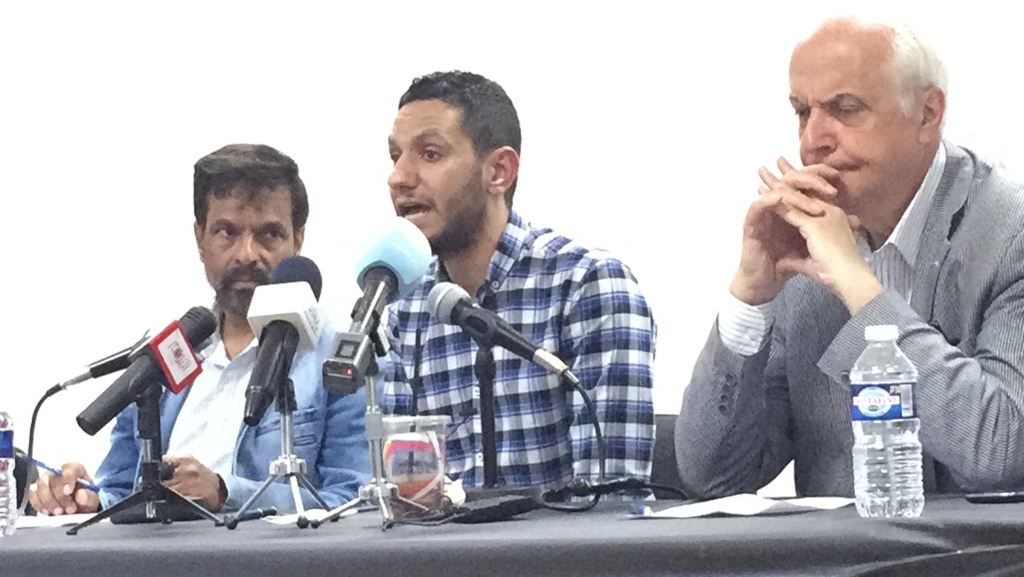Open Discussions/ Gulf Cultural Club
Forty-five years after withdrawal from East of Suez
Cost of British legacy paradoxes: Bahrain’s example
Andrew Smith
Sayed Ahmad Al Wadaei
Ali Abdul Emman
Fr Frank Gelli
Tuesday, 9th August 2016
When the UK withdrew its forces from the Gulf in 1971 the glitter of independence blurred the vision of many, who were struck by the reality of the more sombre outcome. Bahrainis had to endure 45 years of absolute tribal dictatorship that is now bent on implementing policies of genocide against the native population. Successive UK governments have paid lip service to democratic ideals, leaving those who had sought independence under the mercy of regimes whose survival had been possible only with direct security and military help from the West, especially the USA and UK. It is time to observe what went wrong in the past four decades and assess the future of the movements seeking democratic transformation in the age of the petro-dollars dominance.
Chairman: The fl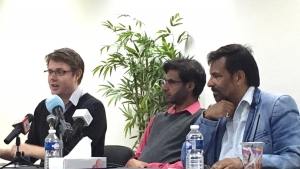 ag flyers of democracy and freedom are the USA and UK but in reality when you look at South America, Central America, the Far East – anywhere on this planet where there has been dictatorship and chaos, the US and prior to that the UK was the culprit. If you look at just three places. Cyprus, the issue between the Greeks and the Turks. Kashmir, the problems left between Pakistan and India and South American countries- Guatemala, Nicaragua, Chile, and Argentina. Wherever there has been a horrid dictatorship, the supporter of that dictatorship has been the USA. In that context we must look at what has happened in the Middle East over the past 45 years.
ag flyers of democracy and freedom are the USA and UK but in reality when you look at South America, Central America, the Far East – anywhere on this planet where there has been dictatorship and chaos, the US and prior to that the UK was the culprit. If you look at just three places. Cyprus, the issue between the Greeks and the Turks. Kashmir, the problems left between Pakistan and India and South American countries- Guatemala, Nicaragua, Chile, and Argentina. Wherever there has been a horrid dictatorship, the supporter of that dictatorship has been the USA. In that context we must look at what has happened in the Middle East over the past 45 years.
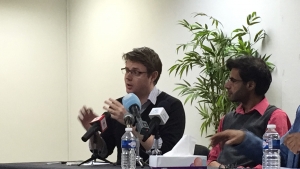 Andrew Smith: Thank you very much to the organisers of this event for inviting me and thank you very much to everyone for coming to what I think is a very important discussion. I am going to talk mainly about the arms trade but also about the political support which consecutive UK governments have provided for the regime in Bahrain. There can be no clearer example of the hypocrisy of UK foreign policy than its relationship with Bahrain. It exposes the gulf between the rhetoric and the reality where on one hand they will talk about the importance of human rights and democracy while on the other hand they are arming and supporting tyrannies and dictatorships.
Andrew Smith: Thank you very much to the organisers of this event for inviting me and thank you very much to everyone for coming to what I think is a very important discussion. I am going to talk mainly about the arms trade but also about the political support which consecutive UK governments have provided for the regime in Bahrain. There can be no clearer example of the hypocrisy of UK foreign policy than its relationship with Bahrain. It exposes the gulf between the rhetoric and the reality where on one hand they will talk about the importance of human rights and democracy while on the other hand they are arming and supporting tyrannies and dictatorships.
This has become more intense since the uprising. Since the uprising in 2011 we have seen even greater collusion and compliance and we have seen even a greater relationship developing between Whitehall and the government of Bahrain.
Looking specifically at arms sales since the uprising in 2011 we have seen more than £50million worth of arms sales to Bahrain. These have included machine guns, sniper rifles and assault rifles – all these are designed to strengthen the Bahraini state whether this is with police or military. There is thin line between the two.
But we have also decided to curry favour with the Bahraini regime. This is represented by a very significant increase in arms sales. Three years prior to the uprising, arms sales were about £2million a year. So for that to go up to £12 million pounds shows there has been a greater focus on Bahrain and that to the arms companies the conflict has been a business opportunity and a chance to sell even more weapons.
The results of this have been deadly and it is not just the arms sales to Bahrain which have been deadly. In March 2011 Saudi Arabia sent UK supplied armed vehicles into Bahrain to safeguard the infrastructure. The UK has supported Saudi Arabia every step of the way throughout its compliance with the Bahraini government.
We have seen Bahrain invited to the UK for the sole purpose of buying weapons. Last September Bahrain was at the arms fair in East London. This like going to a supermarket where the only product on sale is weapons.
Only last month the Bahraini regime was at the Farnborough International Air Show where they were shopping to buy even more weapons. This has happened not just with the full agreement but with the whole support of the UK government. The government has pulled out all the stops to strengthen that relationship. Every single year the UK also publishes its list of priority markets for arms exports. Since 2014, Bahrain has been on that list. Government ministers have gone to Bahrain and have had the red carpet rolled out for them. There have been nice photo opportunities where they have said very nice things about the regime in public and have defended it to the international press.
Throughout recent visits we have seen the signing of a new defence agreement which has not just provided a greater military relationship. It has also seen the opening of a new UK naval base in Bahrain. This is paid for by the regime and is providing a permanent military presence for the UK in the country.
We have found out subsequently that this was not paid for by the Bahraini government – it was gifted to the UK. One question is why would they do that? Why would they spend a lot of money providing a permanent military presence for the UK? A large part of it is that they have got a lot to be thankful to our government in Whitehall for. It is not just the arms which they have been buying. It is also the very visible political support which has gone with the arms deals.
Let us cast our minds back to 2011. At the time that Bahrain was under martial law David Cameron played host to the crown prince inviting him to Downing Street. This send one message that is loud and clear: the UK is supporting the Bahraini government in what it is doing.
Similarly in 2013 Cameron hosted the king of Bahrain again. We have seen regular visits to Windsor Court where they get together with UK royalty to watch horses playing round and giving yet another propaganda victory to the regime.
The year 2014 also saw visits from Prince Andrew and Prince Charles who were there not just for arms sales but to promote ever closer relations. There has been political pressure on the government to chance its track. In 2014 the House of Commons Foreign Affairs Committee, a cross party group, urged the government to put Bahrain on its list of countries of concern. These are countries in which the government is worried about the state of human rights and democracy. At the time it refused.
At the time the Foreign Affairs Committee also noted and I will quote them. They said “both the government and the opposition in Bahrain view UK defence sales as a signal of support for the government. The UK government should take this into account when considering high profile sales.”
And this is a high point. You can’t talk about human rights and democracy at the same time as you sell weapons. The two directly contradict one another. You cannot say that you are trying to stop conflict at the same time as you profiting from it. While the profits have been rolling in, the arms companies have certainly been getting enriched by it. We have seen a former foreign secretary Philip Hammond talking about the significant progress that has been taking place in Bahrain. He said that it is a country which is travelling in the right direction. At almost exactly the same time as he said that Nabil Rajeeb the head of the Bahraini Centre for Human Rights was locked up for six months for sending a tweet that criticised the king.
These are the direct consequences of where we can see political support on the one hand leading to repression on the other. There is a point at which campaigning can work. The government finally added Bahrain to its countries of concern. That took a lot of pressure and there has been a good deal of exposure in recent years and in parliament about what has been happening to end the double speak at the heart of UK foreign policy. And we need to keep up that pressure. The alternative is to ignore it. The alternative is for the issue to be brushed under the carpet and for the status quo to continue. It is an untenable status quo for the people of Bahrain who are paying the price for it.
In the Campaign Against the Arms Trade we stand behind the peaceful opposition to the Bahraini government. We know what you do to and we have to take part in the discussion about what can happen and about how democracy can be promoted. We believe that human rights and democracy are universal and politics is about making choices. Are you with the people protesting on the streets of Bahrain or you are with the government that is repressing them. You are either with those who are being oppressed, detained and tortured or you are with those who are doing the torturing. We know whose side we are on and we want the UK government to be on that side as well. Thank you very much for listening.
Ali Abdul Emman: Thanks to Abrar and the Gulf Cultural Club for asking me to speak about the Bahraini and British government’s relationship. I will be talking about some events from history and while I am talking I just want you to think about this question: will the British government be proud of what they did in the past and what they are still doing to the people of Bahrain. Will it be something to regret? Something that they do not admit.
The relationship between Bahrain and the United Kingdom is going back 200 years. Now the Bahraini government is celebrating 200 years of long-standing relations between the United Kingdom and Bahrain. I will talk about some events happening in the past 100 years. I will start with Isa Bin Ali. He was the governor of Bahrain from 1869 until 1923. He was appointed by the British political agent after some internal war between two brothers Mohamed Bin Khalifa and Ali Bin Khalifa. Isa is the son of Ali Bin Khalifa. He was appointed by the British political agent in 1869 and he was forced to step down in 1923, also by the British political agent.
He was forced to step down because of the petitions that the people of Bahrain signed complaining about the way in which he was oppressing and treating them. That is why he was forced to step down. He was succeeded by his son Hamid Bin Isa. Hamed Bin Isa was on the throne from 1923. During his time actually there were too many uprisings happening – more than 36. Charles Belgrave was appointed by the political agent as a consultant for the Emir. He was a British citizen and the decision maker in Bahrain. He was managing the budget of the country and issuing regulations about what should happen in Bahrain. In 1957 he was forced to resign because of the uprisings which happened between 1954 and 1956. They were the first uprisings that united the Sunnis and the Shia in Bahrain.
I would also like to mention that during the war of 1939 – 1945 the people of Bahrain were sitting in the coffee shops and listening to German radio which led Charles Belgrave to arrest many of them because of this. It also happened in 1956 during the war between Egypt and Britain, France and Israel. There were some demonstrations in the street and Belgrave attached the demonstrators and killed four to six people.
After uprising in 1956 five public Sunni and Shia figures were forced to live in exile. In 1966 Ian Henderson was hired again by the British political agent and he was assigned with the mission of building the security forces to enable the regime to control the country. He was in this position from the 60s until 2000. Ian Henderson is a former colonial officer from the UK. During his time Bahrain became independent in 1971 and Ian Henderson headed the Ministry of the Interior. The constitutions was promulgated but the parliament was dissolved and the State Security Law which is just like martial law was announced. Many people were arrested and tortured. Many died during the 70s because of the torture in the 80s and 90s. He was in his position as the number one decision maker in the Ministry of the Interior until 2000. The current king succeeded his father to the throne. At that time Ian Henderson had a house in the Ministry of the Interior.
The king himself, his father the previous emir, his uncle who is the prime minister since 1971 (the time when the UK used the shilling) his cousins, his brothers, his sons all of them attended Sandhurst Royal Academy. At this academy they taught them how to run the country.
I would now like to ask you do you think that the United Kingdom should be proud of supporting such a regime and to interfere in internal political issues just to support the regime and royal family. I am not expecting that the government of Britain will say sorry. We recently heard Tony Blair saying that he would not say sorry for what he did to Iraq but you as free thinkers do you think the UK government will be proud of what they did to Bahrain?
FILM
On 14th Feburary 2011 the Bahraini revolution erupted. Protesters demanded change and an end to the Al Khalifa family’s rule and monopoly on all power and the country’s wealth. Since the start of the revolution and until now the authorities have chosen violence as a way to quash peoples protest. The shot gun is the weapon of choice. Ali Mushaima was the first martyr of the revolution killed. The number of those killed has grown and to date the number of martyrs totals well over 100.
Some of the martyrs were killed by live ammunition and some like Nisar Abadi were beaten to death. Others died in detention as a result of torture. Ali Radha was run over by a police vehicle. The tear gas which the authorities throw inside the houses claims the lives of many Bahrainis. Others are kidnapped and martyred like the martyrs Yousif Al Khawali and Sayed Al Hamid.
As the authorities violently cracked down on the protestors they were supported by Saudi troops who occupied Bahrain in March 2011. Following this the Pearl Roundabout which was seen as a symbol of the revolution was demolished. The authorities did not stop there. Thirty mosques and places of worship were also destroyed.
The leaders of the revolution were also detained and sentenced to lengthy terms of imprisonment. After the crack down the Bahraini Independent Commission of Inquiry was set up to investigate allegations of human rights violations. It issued recommendations to the authorities including holding torturers to account and issuing compensation to victims. However these recommendations were left on the shelf which prompted the Human Rights Council to issue a further 136 recommendations against Bahrain in May 2012.
Although the authorities accepted most of the recommendations they failed to implement them. Instead they imposed further security measures and restricted freedom of expression. They also banned demonstrations in the capital Manama and sentenced Nabeel Rajab the President of the Bahrain Centre of Human Rights to two years in prison.
The citizenship of 31 members of the opposition was also revoked. They also issued laws restricting freedom of expression as well and sentenced people to prison for insulting the king. The establishment also issued terrorist laws allowing it to punish political opponents. Thousands have been arrested as a result of this law including doctors, engineers, teachers, the elderly and even children.
The authorities meanwhile turn a blind eye to the real terrorist organisations like Al Qaeda and ISIS. Bahrain is no longer a safe environment for human rights defenders to continue their work. Shortly after returning from Europe where he exposed the human rights situation in Bahrain Nabeel Rajab was sentenced. Zeinab Al Khawaja and Mariam Al Khawaja suffered a similar fate.
Leaders of the political opposition who operate within the formal framework are now being arrested and detained. Sheikh Ali Al Salman, Khalil Muhsin are an example of this. The regime has failed to enter into a serious dialogue with the opposition and to resolve the current political crisis going as far as expelling Thomas Malinovsky the US Assistant Secretary for Human Rights in July last year.
Despite reports of human rights violations Britain’s Foreign Secretary Philip Hammond claims that Bahrain is a country which is travelling in the right direction. The statement is seen as a mystery by many. But when we looked into this further we realised it was connected to Britain’s recent plan of establishing a permanent military base in Bahrain. The construction costs will be borne by the Al Khalifa’s.
The human rights situation in Bahrain has rapidly deteriorated but the international community has largely remained silent. The people of Bahrain have no other choice but to bring down the regime.
Rev Fr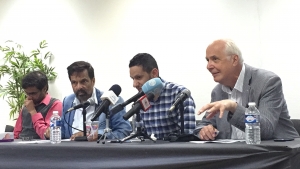 ank Gelli: I speak to you in the name of the one true God. I was actually asked to speak at the last moment so my brief remarks will be structured around three main points: imperialism, monarchy and the House of Saud.
ank Gelli: I speak to you in the name of the one true God. I was actually asked to speak at the last moment so my brief remarks will be structured around three main points: imperialism, monarchy and the House of Saud.
Anthony Eden was Prime Minister of Britain in cohuts with France and the State of Israel because Jamal Abdel Nasser had nationalised the Suez Canal. The USA had its own imperialist strategy and it did not support Britain. So the British, the French and the Israelis had to pull out. It was an ingenomius defeat. And in a way it was the practical end of the British Empire.
Britain already had vast overseas rule. It was not until Benjamin Disraeli was prime minister under Queen Victoria that it was decided to make Victoria Empress of India after the sapoy rebellion had been extinguished in blood. So from that moment there was a British empire.
The official empire came to an end when India became independent after WW2 and after the Suez debacle. But the mentor syndrome never ended. Why should places like Gibraltar and the Falkland Islands be under British rule? Look at a map. It does not make sense. They are so far away. Bahrain is not formally under British rule but defacto what is going is the result of British influence.
And that leads me to the second point which is monarchy. Some of the previous speakers have eluded to Prince Andrew and Sandhurst. He involved his former wife the Duchess of York who wanted one million dollars to arrange an interview with Prince Andrew. He did not know anything about this did he? Would you have paid one million dollars to speak with a chap who would say hello, how are you? So we just had a good idea of what is going on.
I spent two months in Qatar, in Doha where the ruler of Qatar, the emir Sheikh Hamad is a very large man. Now his son rules. He had been trained at Sandhurst. You can see Prince Charles reviewing the Sandhurst line up with the emir of Qatar.
And Prince Charles, did you see him dancing the sword dance in Saudi Arabia just a few months ago? I love the Saudi sword dance. I love to dance it myself. But I would not want to go along with the policies of the House of Saud which leads me to the third point of the just war.
The Saudis have been Britain’s right hand man in the Middle East. Bahrain is a tiny little island which was not threatening anyone yet it was invaded by the Saudi army. That could only be done with the tacit approval of the British and other Western powers.
Yemen more recently is at war. This is not a just war. It is an unjust war. I am not going to reel off the whole just war criteria. I have done a dissertation on it. There is the sectarian card which the West has played. I am sure many of you remember King Abdullah of Jordan some years ago. Mention him invoking the Shia crescent and the Shias taking over the Middle East. This is sheer nonsense. In Bahrain they are not the minority – they are actually the majority. How you deny the majority of the people in a country their rights. It doesn’t make sense.
Lastly some of you may have heard of a famous forgery going on by Hempfer. He was looked upon by the British to inspire the father of Wahabism to do what he did in order to further long term British aims. This is a forgery. If you look at what happened, how the British actually helped the House of Saud to get into power after Lawrence of Arabia had done his work to divide the Arabs it was the House of Saud which was used to further British imperialistic aims.
So here we have actual imperialist strategy. The Saudi monarchy had a lot of financial interests last but not least. So we have here is a monster which we have to fight and in sha Allah we will defeat.
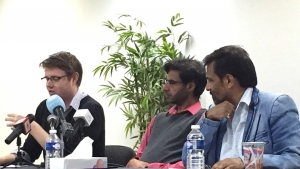 Sayed Ahmad Al Wadaei: Thank you for inviting me to speak. I would like to start by stating something back in 2013. When the King of Bahrain was invited for a show at Royal Windsor. So I decided to take one action. The action was to protest in front of the king and queen and say that dictators should not be invited. It ended up me being arrested by the police and being detained for a few hours. That was in May 2013.
Sayed Ahmad Al Wadaei: Thank you for inviting me to speak. I would like to start by stating something back in 2013. When the King of Bahrain was invited for a show at Royal Windsor. So I decided to take one action. The action was to protest in front of the king and queen and say that dictators should not be invited. It ended up me being arrested by the police and being detained for a few hours. That was in May 2013.
I can still remember that the King of Bahrain hosted an event where he delivered a speech. In that speech he mentioned the importance of the relationship and friendship between Bahrain and the UK which is in its strongest terms. It goes back to 200 years. In 1820 the British and the Bahrainis signed the first agreement. A new agreement was established in 1971 when the British decided to withdraw from the Gulf. He was reflecting the regret that such a decision was made. He quoted his father who said :”Who asked you to leave?”
History records that the emir went into a depression when the British withdrew from Bahrain. This reflects something. It shows that they feel they cannot sustain power without this support. In 2011 Bahrain faced what we call the most popular uprising in its recent history. For a small population like Bahrain you see 200 protesters in the street calling for democratic change and some of them called for the overthrow of the regime you will see this could be the most popular uprising within the entire Arab spring if you compare the population of 700,000 of native Bahrainis.
To stay in power the authorities in Bahrain rely on two powers. One is in the regional context. It is the Saudis who crushed the democratic movement when they crossed the bridge by using British armed vehicles to crush this democratic movement which resulted in thousands of people being arrested. People were killed and they were tortured. Bahrain entered a new chapter when an unprecedented crack down was facing this country.
The support on which Bahrain relies to continue its repression is highlighted by some recent important events. When Ban Ki Moon decided to withdraw Saudi Arabia from the black list for killing children the action from the Saudis was that they could buy the silence of many countries in which they have political interests. They could buy the silence of the USA by purchasing $20bn worth of weapons since the war began in Yemen.
For the British which is the second largest market over three million is a good figure for which we could buy the silence of the conservatives. But then the question continues. But what about the UN? This could be a body of hope for the victims which cannot be twisted. They said to Ban Ki Moon if you keep us on this black list we are going to withdraw 100 million of our funds and you have to change your decision otherwise there will be consequences. When that decision was changed then we began to witness a new era for Bahrain. The repressive Gulf countries could do whatever they wanted to do by making sure that there would be no consequences.
And this is why a new chapter of repression began on 13th June 2016. I was in Geneva at that time when we heard that the most prominent human rights activist in the region was arrested on the day when they opened the Human Rights Council session. The Human Rights Council is one of the best opportunities for the Bahraini government to exercise its pr. To show how much they are improving and all thanks to the UK for providing 1.2m worth of training programmes to the Bahrainis and they could be confident stating that we are helping the Bahrainis to reform and we are helping them in a number of projects. So the Bahrainis would go to Geneva to show their pr exercise and to show the significance of the improvement in the country.
This time they did the opposite. They crossed what the international community would consider a red line. That man is the undersecretary for the International Federation for Human Rights, he is on the Human Rights Watch Advisory Committee. He is the most prominent human rights defender in the region yet he was arrested on the day of the Human Rights Council Session. That is something no one would expect.
The next day the High Commissioner had remarks on Bahrain and he began to talk about the issue of repression in the country. The Bahraini Foreign Minister responded to the High Commissioner’s remarks that we not going to waste our time by listening to a High Commissioner who has no power or strength. We just heard Philip Hammond saying that Bahrain is travelling in the right direction. This is something really alerting.
So the question is what would empower Bahrain to be in a position in which it is so confident to attack anyone – not only Nabeel Rajab was arrested. Al Wefaq the largest political opposition party in the country was officially dissolved.
The most senior Shia cleric in the country had his citizenship revoked. How could a government justify its measures to the international community without any consequences? The answer is very simple and I just wanted to reflect one example which would just reflect the hypocrisy of the UK’s foreign policy but rather the cover-up and the misleading.
There is the case of Mohammed Ramadhan. He is someone who was sentenced to death. He was accused of killing a police officer. The only thing they had against him for that ruling was based on a confession which was extracted under torture. He told the judge how he was tortured and there was no evidence given to the public prosecution. The only evidence they sustained was through evidence submitted during interrogation. This is the hub of torture in Bahrain. It is the place where all torture is conducted.
So the case of Mohammed Ramadhan was raised with the UK government. A parliamentary question was tabled to the FCO. It was specific about his case. The question was whether they had received any evidence related to torture in relation to Mohammed Ramadhan. So the Middle East Minister said that the ombudsman confirmed that there were a number of complaints raised with his office. In the case of Mr Ramadhan there have been allegations of torture. The police ombudsman received a significant amount of the money that the tax payers are paying an amount from the conflict project which the FCO is funding. They have been claiming that the ombudsman is the body to which any victim could complain to.
The evidence which we have is that an official complaint about Mohammed Ramadhan was submitted to the ombudsman. We took that email with the complaint and forwarded it to the FCO telling them here is the evidence of the complaint submitted. We thought there would be a correction to their statement because now they are in a position to say we have seen the evidence although the ombudsman was misled. We sent that to the FCO and they said we will investigate if it was sent.
Mohammed Ramadhan was asked whether he wanted to make a correction about the statement and then the minister continued to misled the parliament stating that we are pleased to see that the ombudsman had officially launched an investigation. And we appeared not to see any evidence related to Mohammed Ramadhan.
The only way that people could expose this misleading is to test the FCO with evidence. The moment we provided that evidence and we were in a position to show how the FCO obtained all this evidence but they decided to mislead. It is not the first instance where parliament was misled.
We saw a recent correction related to Saudi Arabia about war crimes committed in relation to international humanitarian law in Yemen. Then we have seen the recent retraction by the ministers.
But this policy of supporting dictators in Bahrain and Saudi Arabia and arming them and also providing them with training with various things which will provide them with political coverage will be a black mark on British history.
**Sayed Ahmad AlWadaei is Director of Advocacy for the Bahrain Institute for Rights and Democracy (BIRD). He studied in UK obtaining his BSc degree from the University of Brighton and returned to Bahrain in 2008. He was among the youth who spearheaded the 14th February Revolution in 2011. He was injured in the attack by government forces on Pearl Roundabout in mid-March of that year. He was then arrested and severely tortured. Since he obtained political asylum in UK he has embarked on his human rights work which took him to Geneva, Paris, Brussels and Washington in pursuit of justice to the people of Bahrain.
***Andrew Smith is a spokesperson for Campaign Against Arms Trade. He is a supporter of Bahraini human rights and democracy, and has worked for CAAT since 2014. Andrew has written for a range of publications, including the Independent, The Guardian and Huffington Post. He graduated from the University of Dundee. He worked with the Brent Council and occupied various posts with Lansons, Oxfam, The Fifth Business and the Scottish Parliament. He also worked with the Dundee University Student’s Association and Archives, Record Management and Museum Services.
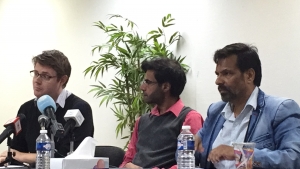 ****Ali Abdul Emam is a Bahraini blogger and Human rights Defender. He is the founder of Bahrain Online, a popular online forum and pro-democracy news website. Although he went into hiding in March 2011 to escape the Bahraini Government’s crackdown on protesters, he was convicted in absentia for plotting to overthrow the Government, and sentenced to 15 years in prison. In 2013, Abdul Emam fled to the UK where he was swiftly granted political asylum. On May 21, 2013, the Danish think tank CEPOS held their annual Freedom Award, where Abdulemam received the Freedom Prize. Abdulemam also won the Hellman/Hammett Award from Human Rights Watch in 2011.
****Ali Abdul Emam is a Bahraini blogger and Human rights Defender. He is the founder of Bahrain Online, a popular online forum and pro-democracy news website. Although he went into hiding in March 2011 to escape the Bahraini Government’s crackdown on protesters, he was convicted in absentia for plotting to overthrow the Government, and sentenced to 15 years in prison. In 2013, Abdul Emam fled to the UK where he was swiftly granted political asylum. On May 21, 2013, the Danish think tank CEPOS held their annual Freedom Award, where Abdulemam received the Freedom Prize. Abdulemam also won the Hellman/Hammett Award from Human Rights Watch in 2011.
Fr Frank Gelli was born in Rome. He worked there as a freelance journalist and playwright. In 1973 he came to England as a correspondent of the drama magazine Sipario. After obtaining degrees in philosophy, theology and education from London and Oxford Universities in 1986 he was ordained as an Anglican priest. From 1989 to 1991 he was chaplain of the church of St Nicholas, Ankara, Turkey.
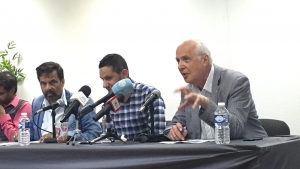
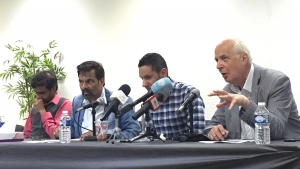
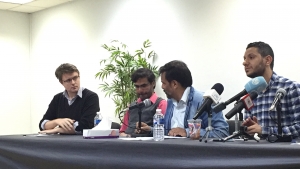
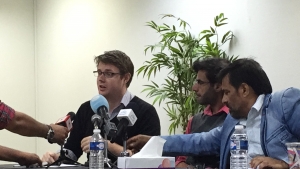
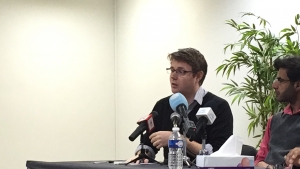
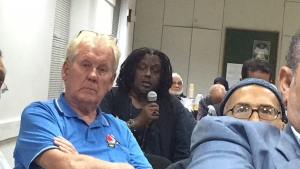
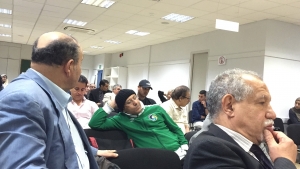
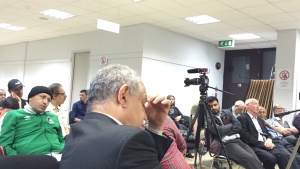
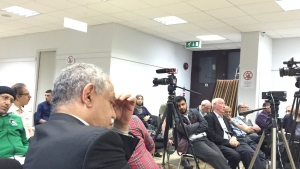
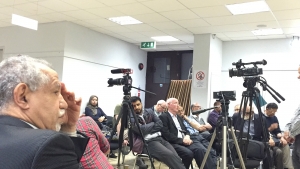
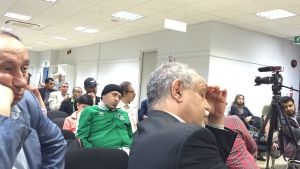
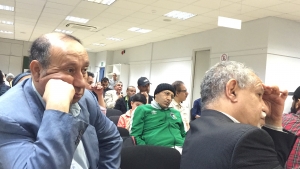
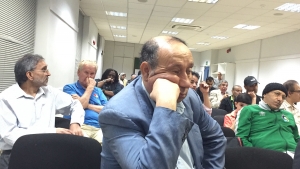
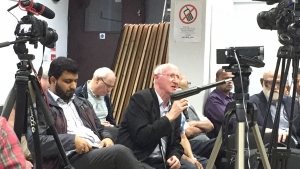
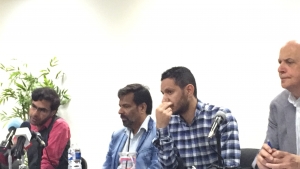
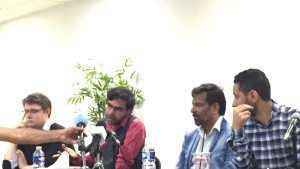
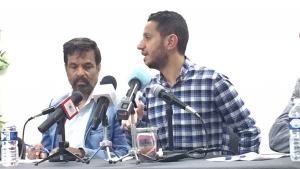
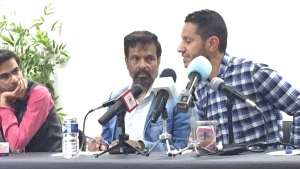
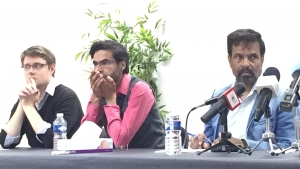
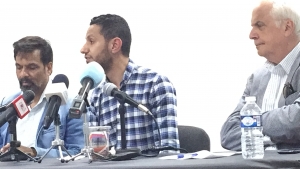
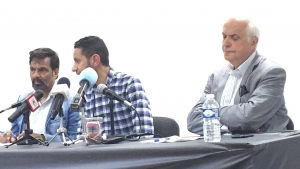
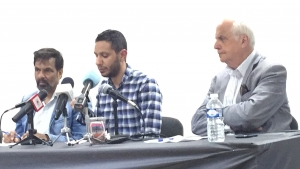
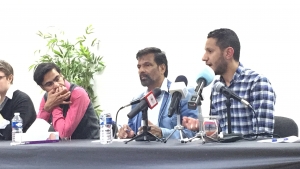
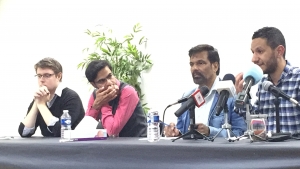
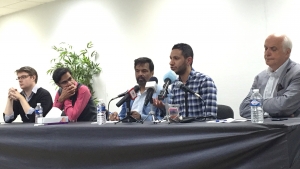
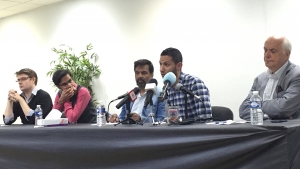
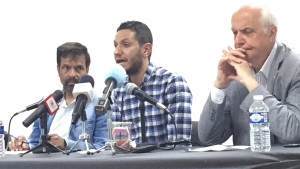
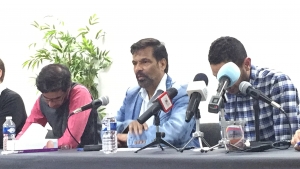 Curate of Kensington until 1999 he has since devoted his energies to the twin tasks of writing full-=time and commitment to inter-religious dialogue. He is founder and coordinator of the Arkadash network a spiritual fellowship devoted to Muslim-Christian friendship and reconciliation. His interests range over literature, poetry, painting, arts, spirituality and especially mysticism. He has just finished writing a book on the Prophet Muhammad and is currently working on a book on Jesus.
Curate of Kensington until 1999 he has since devoted his energies to the twin tasks of writing full-=time and commitment to inter-religious dialogue. He is founder and coordinator of the Arkadash network a spiritual fellowship devoted to Muslim-Christian friendship and reconciliation. His interests range over literature, poetry, painting, arts, spirituality and especially mysticism. He has just finished writing a book on the Prophet Muhammad and is currently working on a book on Jesus.

